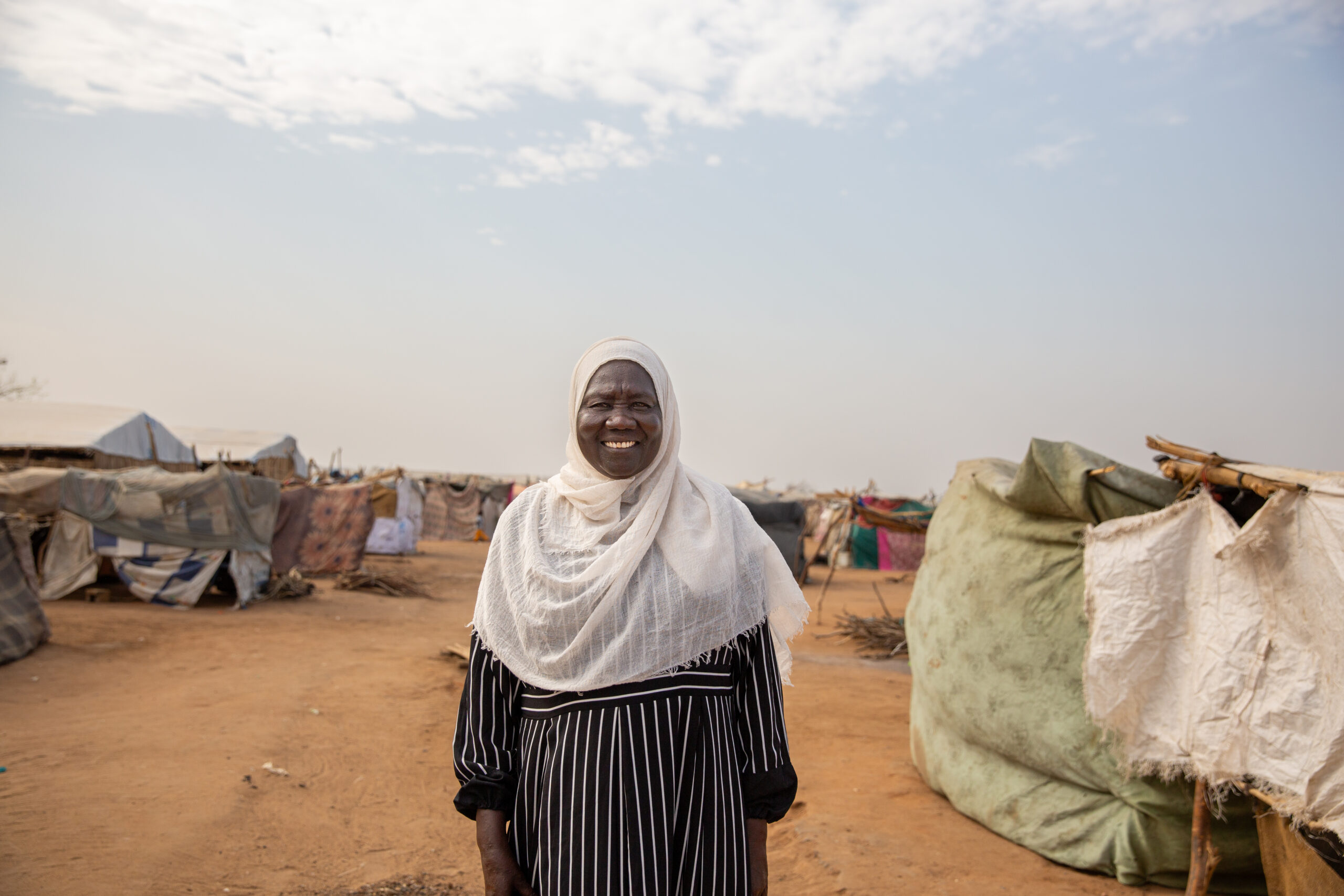We need smarter, more focused aid

South Sudan, where aid cuts have had a major impact. Fahmo Mohammed for the IRC
As aid budgets are being slashed, the sector needs a decisive shift in how aid is delivered, writes Flora Alexander, Executive Director of International Rescue Committee UK.
The global humanitarian system stands at a precipice. Over 300 million people worldwide need humanitarian assistance, yet we face a ballooning funding gap. Presently only 5 per cent of the $44.72 billion needed to meet humanitarian needs has been funded, leaving millions of the world’s most vulnerable people at risk of not receiving critical aid. This isn’t just a shortfall; it’s a humanitarian catastrophe unfolding in slow motion.
A new era for foreign aid is upon us. In these straitened times, we must fundamentally rethink where aid is spent, what it’s spent on, how it’s delivered, and how it’s funded. As we lay out in our new report, the IRC is calling for aid that gets back to its primary focus on the most vulnerable communities, and an increased focus on proven, cost-effective solutions. In short, we need smarter, more focused aid.
The paradox of our time: rising needs, shrinking resources
As major donors like the United States, United Kingdom and European countries slash their Official Development Assistance (ODA) budgets, we’re witnessing the devastating impact in real-time.
In Sudan, where famine has been officially declared, aid cuts have forced the closure of 80 per cent of communal kitchens. In Chad, refugees fleeing violence have lost access to critical food, water, and education programmes. By some estimates, cuts to global health spending could cost 25 million lives in the next 15 years – a preventable tragedy that should shock our collective conscience.
Aid has lost its focus on extreme poverty
In addition to the radical cuts, aid has lost its focus on where need is greatest. Analysis in IRC’s report shows that humanitarian needs are increasingly concentrated in 13 fragile and conflict affected states – including Afghanistan, Sudan, Yemen, and the Democratic Republic of Congo – which are experiencing the devastating convergence of conflict and climate change.
These countries host over a quarter of the world’s population living in extreme poverty yet received less than 10 per cent of ODA in 2023. They are also most at risk from the fallout of ongoing global aid cuts despite facing overlapping crises of extreme hunger, malnutrition, violence, and displacement.
We need to prioritise interventions that work
The international development sector needs to adapt to this new funding landscape. This isn’t just about doing more with less; it’s about doing better with what we have, ensuring that aid delivers the greatest possible impact for people affected by crisis. Through evidence collected in over 400 cost analyses across 37 countries, the IRC knows what works to ensure interventions really deliver:
- Simplified malnutrition treatment: With the same financial resources invested in a refined system, we can reach thousands more children suffering from acute malnutrition, cutting treatment costs by up to 30 per cent.
- Vaccinations and community health: Disease prevention through vaccination, particularly when delivered by frontline actors, has proven highly effective. In partnership with GAVI, the IRC-led REACH initiative delivered 9 million childhood vaccine doses in East Africa at an average cost of just £3 per dose – immunising previously inaccessible, ‘zero-dose’ children in conflict-ridden areas.
- Cash assistance: One of the strongest evidence-based interventions in international aid, cash transfers reduce poverty and create additional value in local economies. The IRC’s Cash First programme delivered $79 million to over 2 million people across 37 countries. Yet less than 20 per cent of the humanitarian aid budget goes in cash disbursements, even before US cuts take effect.
- Anticipatory action: Rather than responding after disasters strike, we can act before they happen. In Nigeria, Guatemala, Somalia, and Afghanistan, our “Follow the Forecast” approach uses AI-enabled climate forecasts and local knowledge to provide pre-shock cash support.
Getting aid to where it’s most needed
Prioritising impact means delivering aid to the hardest-to-reach communities, who are often overlooked but most in need. This requires using all diplomatic levers to protect and expand access to affected populations while strengthening frontline humanitarian responders.
Local partners play a critical and effective role in humanitarian response and recovery. Their work is more targeted and tailored to community needs, and often more cost-effective. The IRC’s Partnership Excellence for Equality and Results (PEERS) System partnership model has already helped us channel over 15 per cent of global funds to local partners – on track to reach 25 per cent this year.
A new financial architecture for aid
With ODA projected to shrink by 20 per cent in 2025, we must ensure that every pound, dollar, and euro brings the greatest possible benefits to those impacted by crises. Grant-based aid should be safeguarded for the most vulnerable contexts, while aid quality should be prioritised through flexible, multi-year funding and expanded partnerships that ensure those that need aid most are able to receive it.
We must also explore innovative financing mechanisms like climate insurance and humanitarian debt swaps to bring more money into the aid system and protect grant-based funding for countries that need it most.
The path forward
The decisions made today will determine whether this new era of aid ushers in a period of unprecedented global suffering. An urgent focus is required on the communities facing the greatest needs, alongside a commitment to follow the evidence and prioritise investment in what works, whilst embracing the innovations which can mitigate the worst impacts of the cuts.
The IRC is calling on the public to step forward when governments step back: donate here
Flora Alexander is Executive Director of International Rescue Committee UK



